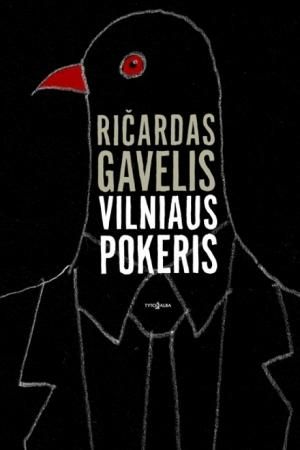 Vilnius Poker
Vilnius Poker
Ričardas Gavelis

Ričardas Gavelis (1950-2002) is a legendary figure in Lithuanian literature. He studied theoretical physics and (as was common in the Soviet Union) was assigned to work on a popular science magazine, were he discovered his ability to write. He debuted in 1976, and wrote several collections of short stories. But his groundbreaking work, a novel called Vilniaus pokeris, appeared in 1989, on the brink of independence. It dissects the cruel Soviet system and the person who is broken by it. His later novels continue the theme of the split identity of the post-Soviet person, and another theme that later became more and more prominent was the depiction of the city of Vilnius, in which it became almost a personification. Interestingly, Gavelis never received any major literary prize during his life, even though he is undoubtedly the most important and influential literary figure of the 1990s. He still remains the iconic ‘transition writer’ of the early post-Soviet period.
Vilniaus pokeris (1989)
The book tells the story of a person who has lived in Lithuania through most of the 20th century: his childhood in the independent prewar republic, then the Soviet occupation, freedom-fighting, deportation, and, finally, the years just before independence. The main character is persecuted by the system almost to the point of destruction, but he maintains the ability to watch and analyse. This is not so much a novel about resisting the system, as about nameless, invincible and metaphysical evil in the world in general. It contains dreams and nightmares, visions and mind wanderings into the past or into fantasy. It deconstructs both the myths of the Evil Empire, and the myths of patriotism. And finally, several more characters briefly retell the same story, and it turns out that there is no single truth among them. When it first appeared, the book was considered shocking, with scenes of sex and violence. Now that effect is probably diminished, but it still remains one of the most important Lithuanian novels. It is also one of the few available in English (translated by Elizabeth Novickas).
Vilniaus pokeris (1989)
The book tells the story of a person who has lived in Lithuania through most of the 20th century: his childhood in the independent prewar republic, then the Soviet occupation, freedom-fighting, deportation, and, finally, the years just before independence. The main character is persecuted by the system almost to the point of destruction, but he maintains the ability to watch and analyse. This is not so much a novel about resisting the system, as about nameless, invincible and metaphysical evil in the world in general. It contains dreams and nightmares, visions and mind wanderings into the past or into fantasy. It deconstructs both the myths of the Evil Empire, and the myths of patriotism. And finally, several more characters briefly retell the same story, and it turns out that there is no single truth among them. When it first appeared, the book was considered shocking, with scenes of sex and violence. Now that effect is probably diminished, but it still remains one of the most important Lithuanian novels. It is also one of the few available in English (translated by Elizabeth Novickas).